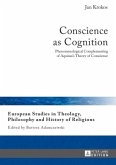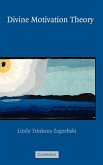Hinweis: Dieser Artikel kann nur an eine deutsche Lieferadresse ausgeliefert werden.
J. Budziszewski is Professor in the Departments of Government and Philosophy, University of Texas at Austin. Especially known for books on classical natural law and commentaries on Thomas Aquinas, he is also keenly interested in virtue ethics, conscience, self-deception, family and sexuality, religion in public life, toleration, and the unravelling of our common culture.
Personal preface: on discovering Thomas Aquinas
Commentator's introduction
1. Was a divine law needed?
2. Does divine law come in one edition, or in two, old and new?
3. Were any of the old law's precepts moral?
4. Were any of the old law's precepts judicial?
5. Were the promises of benefits and threats of penalties appropriate?
6. Are all of the old law's moral precepts also included in the natural law?
7. Why does the old law contain just these moral precepts?
8. Were the old law's moral precepts appropriately formulated?
9. Can any exceptions be made to the old law's moral precepts?
10. Was it enough to obey the old law's moral precepts, or did they have to be obeyed in a certain way?
11. Did the old law's moral precepts have to be obeyed according to love or charity?
12. How are the moral precepts of the decalogue related to the old law's other moral precepts?
13. Did the moral precepts of the old law make man just and acceptable in the sight of god?
14. Were the old law's ceremonial precepts arbitrary, or given for intelligible reasons?
15. Reasons for old law judicial precepts about relations between citizens and rulers
16. Reasons for old law judicial precepts about relations among citizens
17. Reasons for old law judicial precepts about relations with non-citizens
18. Is the new law a written law, or is it poured into us?
19. Does the new law make men just and acceptable in the sight of god?
20. Is it appropriate that the new law includes not only precepts but also 'counsels'?
21. Afterword: Implications of St Thomas's teaching for the world of the present.








